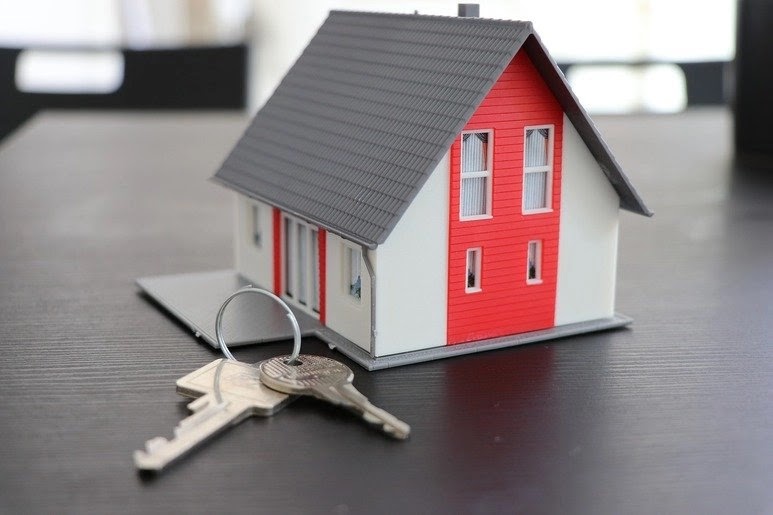Thinking about buying a house in residency? It’s a significant decision that needs careful thought. This guide will cover everything you need to know, from evaluating your finances and understanding mortgage options to weighing the pros and cons of homeownership during residency.
Key Takeaways
Before considering homeownership, residents should thoroughly evaluate their financial situation, especially regarding student debt and income.
Understanding the length of the residency program is crucial; purchasing a home may be beneficial for longer programs, but potentially impractical for shorter ones.
Residents have specific mortgage options, such as physician mortgages, which offer favorable terms compared to traditional mortgages, aiding in the home-buying process.
Evaluating Your Financial Situation

Residents face unique financial challenges that require careful consideration before starting the home-buying process. With significant student loan debt—typically around $250,000 or more—and minimal savings upon graduation, it’s no surprise that many residents live paycheck to paycheck. This financial reality can make it difficult to manage the costs of homeownership, including the initial down payment and ongoing expenses.
Assessing whether you can afford a home is crucial. The low salary offerings during residency mean that buying a house may not always be feasible, especially in high-cost cities like Los Angeles, New York, and San Francisco. Weigh these financial challenges against your long-term goals and personal circumstances. Consider whether you can manage monthly mortgage payments alongside student loan repayments.
Improve financial stability by renting out a room to offset mortgage costs or accepting family help for down payments and closing costs. These approaches can provide a cushion, helping you better manage housing costs and avoid further debt, ultimately supporting your financial future.
Buying a house during residency is a personal decision. It requires evaluating your financial situation, understanding your income and expenses, and deciding if you can afford a mortgage comparable to your current rent. Carefully considering these factors will help you navigate this significant life choice.
Understanding Residency Program Length
The length of your residency program is pivotal in deciding whether to buy a house. For longer residency programs, purchasing a home might make financial sense due to potentially lower monthly payments with shorter adjustable-rate mortgages. On the other hand, if your residency is shorter, renting might be a more practical option to avoid the hassles of buying and selling a home.
Staying in a home for at least three to four years is generally advised to recoup upfront purchasing costs. This period allows you to break even on your investment and start building equity. Knowing your residency program timeline can help you make an informed decision aligned with your financial goals and life plans.
Mortgage Options for Residents
Residents have specific mortgage options suited to their financial situations and anticipated future earnings. One of the most appealing options is the physician mortgage, which offers benefits such as no private mortgage insurance (PMI) and higher borrowing limits. These features make homeownership more accessible for new physicians despite their current income constraints.
Choosing between physician and traditional mortgages depends on factors like down payment requirements and long-term career plans. Knowing these options can help you navigate the home-buying process more effectively and select the best financing strategy.
Physician Mortgages
Physician mortgages are specialized loans for medical professionals, offering benefits tailored to the financial situations of residents and new physicians. A key advantage is that they do not require private mortgage insurance (PMI), saving residents significant monthly costs.
These mortgages generally offer higher borrowing limits than traditional ones, making it easier to purchase homes in competitive markets. Additionally, many lenders base loan approvals on anticipated future earnings rather than current income, providing more flexibility for residents who are not yet at their peak earning potential, especially in light of changing interest rates.
Overall, the benefits of physician mortgages, like no PMI and higher borrowing limits, make them attractive for residents buying their first homes. This specialized loan can help you build equity and gain financial stability during your residency.
Traditional Mortgages
Traditional mortgages, though common, present several challenges for residents. High levels of student debt can hinder loan qualification due to unfavorable debt-to-income ratios. Conventional mortgages often require a 20% down payment to avoid private mortgage insurance, posing a barrier for residents with limited savings.
Substantial student loan debt and hefty down payment requirements make securing a traditional mortgage particularly challenging for medical students. These constraints may make traditional mortgages less advantageous compared to physician mortgages, especially given the financial realities of residency.
In summary, while traditional mortgages are an option, they may not be the best fit for many residents. Physician mortgages could provide more favorable terms and better align with your financial situation and career goals.
Real Estate Market Considerations

Current real estate market trends are critical when buying a house during residency. As of early 2025, home prices nationwide have increased by 4% year-over-year, with the median price hovering around $417,968. Additionally, the average 30-year fixed mortgage rate has reached 7.0%, marking a slight increase from the previous year.
Despite rising costs, there has been a 12.1% increase in homes available for sale in the U.S., indicating growing inventory for buyers. However, the competitive nature of the market is evident, with 22.5% of homes sold above their listed price. This high demand can make it challenging for residents to secure a home within their budget.
Interestingly, 18.2% of homes have experienced price drops, suggesting some shifts in buyer dynamics. Understanding these trends can help you make an informed home purchase decision, ensuring you are well-prepared to navigate the competitive housing market during residency.
Location and Commute Time
Living close to the hospital is crucial for residents due to the demanding nature of residency. Minimizing commute times can provide you with more energy and time for both work and personal life, reducing the stress associated with long commutes.
Selecting a convenient location near your workplace can enhance your well-being and job performance.
Hidden Costs of Homeownership
Homeownership comes with hidden costs that can significantly impact your financial health. Property taxes, homeowners' insurance, and furnishing costs are often underestimated but can add up quickly. Factor in these expenses when budgeting for homeownership to avoid unexpected financial strain.
Homeowners' insurance may exclude natural disasters, requiring additional policies for events like floods or earthquakes. Maintenance and unexpected repairs can add to the financial burden, including costs for landscaping and homeowners' association fees. These ongoing expenses can make homeownership more costly than initially anticipated.
Preparing for these hidden costs will help you manage your finances more effectively and avoid further debt. By considering these factors, you can make a more informed decision about whether buying a house during residency is the right choice for you.
Renting vs. Buying
A major decision residents face is whether to rent or buy a house. Renting typically offers more flexibility and reduces the risks associated with property ownership. Nice houses comparable to what you might buy can often be rented, providing good living options without the commitment.
Budgeting as a renter is often easier since rent payments are fixed and predictable, unlike the variable expenses of homeownership. Additionally, buying a house during residency might lead to financial stress due to significant upfront costs and ongoing expenses. However, homeownership offers the potential to build equity, which is not possible when renting.
Weigh the pros and cons of buying a house before making a decision. Consider your location, residency program length, and financial situation to determine whether renting or buying makes more sense.
Building Equity During Residency
Homeownership during residency can lead to substantial financial wealth over time. Living in a home for several years can improve your long-term financial prospects through equity growth. This equity can be a valuable asset, contributing to your financial stability and future wealth.
Additionally, homeowners can exclude income from the discharge of qualified principal residence indebtedness until January 1, 2026. Homeownership can also provide a sense of stability and accomplishment, enhancing your personal and professional life.
Carefully consider the benefits of building equity to decide if buying a house during residency is a wise investment.
Tax Implications for Residents
Residents may not receive significant tax deductions for owning a home compared to other taxpayers. However, interest on a loan secured by your home is generally deductible as mortgage interest if you itemize deductions. The standard deduction amount for married filing jointly in 2023 is $27,700.
Homeowners who stay in their homes for four years or more can benefit from interest rate write-offs and building equity. Understanding these tax implications can help you make an informed decision about homeownership during residency and its financial benefits.
Preparing for Future Moves

Preparing for future moves is important for residents who may need to relocate for job opportunities after training. The average timeframe from Match Day to the start of residency is around three months, which can influence housing decisions. Closing on a home can take about one month, which may not align with quick residency transitions.
Buying a house during residency may not be a bad idea if there is uncertainty about staying in the area long-term. Consider future job opportunities and potential relocation needs when making housing decisions.
Planning ensures your housing choices align with long-term career and family goals.
Summary
In conclusion, buying a house during residency is a complex decision that requires careful consideration of your financial situation, residency program length, mortgage options, and plans. By evaluating these factors, you can make an informed decision that aligns with your financial future and life goals. Remember, the right choice depends on your unique circumstances, and making an informed decision will lead to a more secure and fulfilling future.


